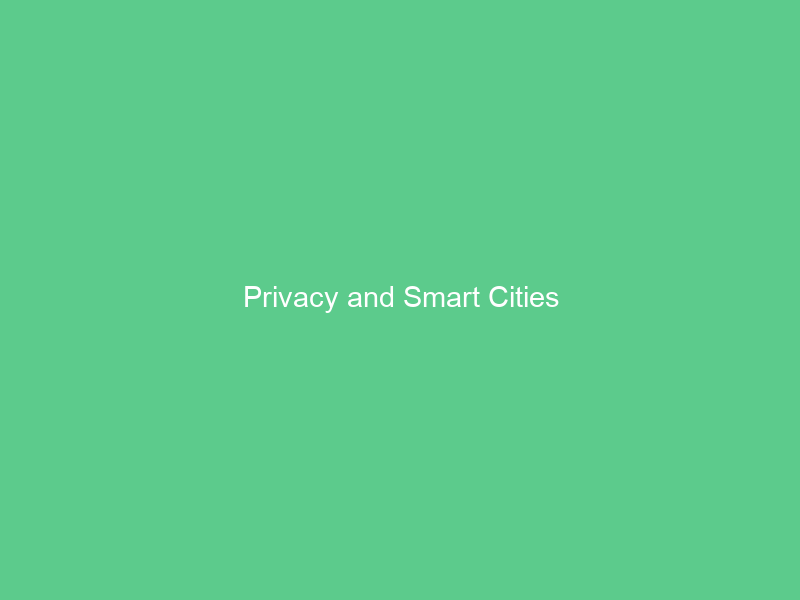As smart cities evolve, questions have arisen regarding privacy protection. Citizens want to know how cities use data without jeopardizing individual rights.
Smart cities around the world use sensors to streamline aspects such as energy distribution and waste disposal, helping cut costs while improving sustainability and increasing livability for their citizens.
Energy
Cities have identified energy resilience as an imperative to effectively managing urban growth and providing vital services like public safety, emergency response, traffic control and waste disposal. Smart solutions must be implemented that optimize energy performance. Cities are prioritizing energy resilience.
Hardware and wireless components used to support smart city technologies have become more cost-effective, enabling cities to incorporate connected devices like streetlights into infrastructure to collect and analyze data on air quality, noise pollution, congestion and other factors that affect citizens’ health.
Making energy data publicly accessible enables citizens to understand their consumption and grid performance relative to others, increasing trust and encouraging participation in policy discussions and initiatives [198]. Unfortunately, Smart city projects still face some significant hurdles which could impede their overall effectiveness; such as an absence of an integrated framework to guide these efforts as well as robust policies to guarantee their success [201,202].
Transportation
Smart cities involve digitally connecting infrastructure and services with automation and connectivity to the internet, enabling these systems to monitor and interact with one another more efficiently for improved delivery of services and energy management.
Surveillance equipment used on busy streets often includes sensors, cameras, and servers connected to the network that send control information directly to traffic signals allowing them to adjust for peak usage periods more effectively and public transit companies sharing data between themselves and with city government so riders have real-time transportation schedules are provided.
Smart cities focus on more than improving or adding city services via digital technology – they also prioritize energy efficiency, climate resilience and social inclusion. Research is ongoing to assist urban centers align technological growth with strategic priorities and societal needs, taking into account potential marginalization among certain populations. By doing this, Smart cities ensure the benefits of these innovations reach everyone equally [32]. This is crucial as their costs and effects may disproportionately impact low-income communities or those experiencing distress.
Waste Management
Smart cities provide cities with an opportunity to improve waste management efficiency using cutting-edge technologies. Not only can this lower environmental impacts, but these systems may also increase energy efficiency and enhance citizen’s quality of life.
Internet of Things (IoT) devices play an integral part of smart cities by collecting data and monitoring environmental conditions. IoT devices placed in garbage bins, for instance, can help monitor when they’re full and automatically arrange waste collection services – LTE Cat M, NB-IoT LoRa Bluetooth are particularly well suited to this role due to their cost efficiency and wide connectivity capabilities.
Smart cities use real-time data collection and analysis to detect patterns in waste generation or air pollution levels, alert citizens of changes, promote sustainable living habits, encourage businesses to develop innovative models to reduce emissions, or inspire citizens to adopt them themselves.
Mobility
Imagine a city where traffic moves with the smooth efficiency of school of fish instead of crawling slowly along like caterpillars – that’s what a smart city would look like:
Smart roads, transportation fleets and public transit systems reduce congestion while making commuting less of a chore for citizens. Smart parking helps people locate available spots quickly while integrated payment systems streamline fare systems for ease of payment.
Cities can utilize energy-efficient technology to enable electric vehicle (EV) charging during off-peak hours in order to balance power supplies and lessen strain on the grid, while smart waste management technologies contribute towards sustainability, social inclusion and economic viability. Monitoring air quality allows cities to regulate emissions while improving economic viability.
Smart cities require an infrastructure comprised of diverse technologies that interact seamlessly. Data collection and communication play a key role in realizing solutions tailored to meet each city’s objectives and needs, and an expansive network of sensors across each district gathers this data before providing insights to decision-makers.

